Dental Implants Frisco, TX
The Gold Standard of Tooth Replacement
Stonebriar Smile design is here for to deliver the best Dental Implants Frisco, Tx. Dental Implants are often the best way to restore your smile’s appearance and protect your long-term health. Contact Stonebriar Smile Design today to get started on rebuilding your smile!
It’s easy to think of missing teeth as just a cosmetic issue. However, they can also become a significant threat to oral health over time. When a tooth goes missing, the jawbone in the area starts to naturally deteriorate, and this can cause your remaining teeth to shift and misalign, leading to chronic jaw pain. Plus, people with missing teeth are much more likely to develop gum disease, the leading cause of tooth loss for American adults!
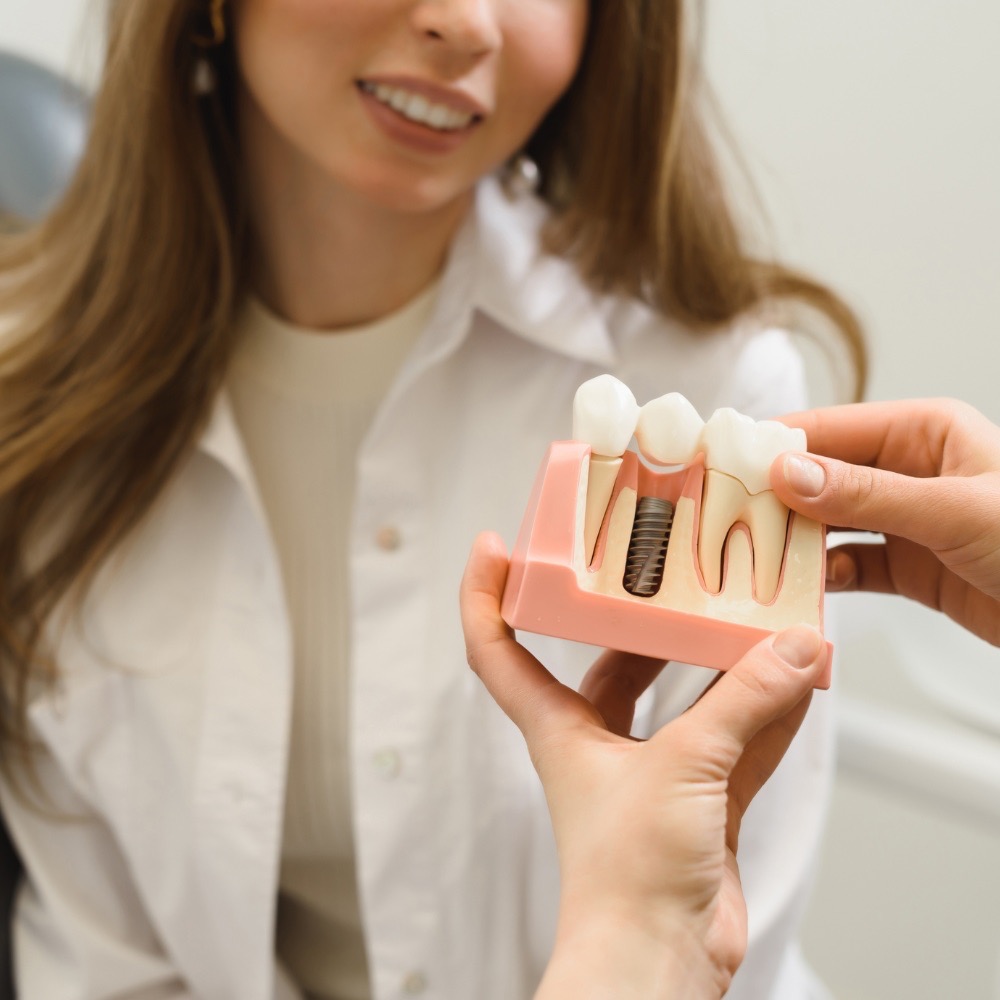
What Are Dental Implants?
A dental implant is a small titanium post that is surgically placed directly into the jawbone to recreate a lost tooth’s root structure. This can then be attached to various dental prosthetics, such as a crown, bridge, and even a full denture. This artificial root is what makes dental implants so special. It not only gives your new teeth unrivaled stability but also prevents the jaw deterioration we mentioned earlier. Compared to traditional tooth replacements, which only last 5 to 10 years on average, dental implants can last 30 years or more with the right maintenance, so we often recommend them to most eligible patients.
Why sacrifice the structure of surrounding good teeth to bridge a space? Traditional bridges require grinding down adjacent healthy teeth to support the bridge, compromising their integrity. Dental implants, on the other hand, stand independently and preserve your natural teeth.
In addition, removing a denture or a partial at night may be inconvenient. Dentures that slip can be uncomfortable and rather embarrassing. With dental implants, these issues become a thing of the past. The secure fit of implants means no more worrying about dentures slipping while you speak or eat.
Furthermore, the maintenance of traditional dentures and bridges can be cumbersome, requiring special cleaning solutions and routines. Dental implants, however, are cared for just like natural teeth, simplifying your daily oral hygiene routine.
In conclusion, dental implants provide a durable, stable, and convenient solution that not only enhances your smile but also improves your overall quality of life. The investment in implants is an investment in long-term dental health and peace of mind.
The 4-Step Dental Implant Process
The dental implant process uses the most advanced technology and techniques to achieve phenomenal results that look and feel natural. Over the course of several months, our team of professionals will guide you through multiple appointments and healing periods so you can regain a strong bite and sturdy new replacement teeth. If you’re wondering how our dental implant procedure works and what your unique timeline will look like, be sure to schedule a consultation with one of our experienced dentists. That way, you can get any questions you may have answered and feel confident in your decision to get the latest restorative procedure.

1Initial Dental Implant Consultation
The first step that you’ll need to take to start your journey toward a revitalized smile is to schedule an initial consultation. Our dentists will examine the health of your teeth and gums and take several images of your facial structure. We’ll also ask you about your medical history and what goals you have in mind for your restored grin. Once we’ve collected all the information we need, we’ll be able to let you know if you’re a good candidate for the treatment. If not, we may suggest a different tooth replacement option that would better benefit your quality of life. If you are, we’ll develop a customized treatment timeline and walk you through every step of your dental implant process in Frisco.
2Dental Implant Surgery
Once you decide that dental implants are the right choice for you, we’ll schedule your surgery. It’s a minimally invasive procedure that involves making small incisions in your gums to insert your implants. Using the images that we’ve captured of your jawbone, we’ll designate the strongest areas to place the implants for added stability and strength. Depending on how many implants you need to have placed, we may use a local anesthetic or sedation so that you don’t feel a thing.
3Dental Implant Osseointegration/Abutment
After your dental implants have been placed, you’ll go through a healing process that takes several months. Over the course of this time, your dental implants will naturally fuse with your jaw through a process called osseointegration. This allows for a strong bond to take place, restoring up to 95 percent of your bite strength. Once your gums have healed, we’ll call you in for your next appointment to place your abutments. These are small, metal connector pieces that attach to the top of your implants to secure your restorations in place.
4Delivery of Dental Implant Restorations
After your abutments have been placed, we’ll take impressions of your mouth so we can create a model to send to our dental laboratory to craft your restorations. When we receive your permanent crown, bridge, or denture, we’ll call you in for your last appointment. After making sure the fit is perfect and your bite is aligned, we’ll secure them to your abutments to complete your newly remodeled smile.
The Surgical Procedure Explained
If you’re like most people, then the idea of dental surgery may trigger images of a pitiful prisoner entangled in a medieval torture machine. When it comes to dental implant surgery, though, there’s nothing maddening about it. In fact, you won’t experience any pain at all, as we’ll use numbing medication. If you’re still a little anxious, we can even prescribe you an oral sedative to take before your appointment to ensure you have a painless and worry-free experience.
But what exactly does the procedure entail? Let’s break it down.
For most patients, the placement of dental implants involves two surgical procedures. Initially, implants are placed within your jawbone. For the first three to six months following surgery, the implants are beneath the surface of the gums, gradually integrating with the jawbone. During this time, you’ll be able to wear temporary dentures and maintain a soft diet. Meanwhile, your dentist will be busy forming your new replacement teeth.
As the implants integrate with your jawbone, they essentially become a part of your body. This critical healing period ensures that your implants are stable and ready for the next phase. You won’t be left in discomfort or inconvenience; temporary dentures will help you go about your daily life with minimal disruption.
Once the implant has successfully integrated into the jawbone, the second phase begins. At this stage, your dentist will uncover the implants and attach small posts that protrude through the gums. These posts act as anchors for the artificial teeth, which will be placed later. The beauty of this design is that once the artificial teeth are in place, these posts won’t be visible at all.
When the artificial teeth are attached, you’ll have a fully functional and aesthetically pleasing new set of teeth. The entire procedure usually spans six to eight months, but rest assured, most patients experience minimal disruption in their daily life.
In essence, while the idea of dental implant surgery might initially seem daunting, the reality is far from it. With careful planning, effective numbing medication, and possibly an oral sedative, the process is designed to be as smooth and painless as possible. So, you can confidently look forward to a brighter, healthier smile without the worry.
What Type of Anesthesia Is Used for Dental Implants?
To ensure you have all the information you need for a smooth and comfortable dental implant procedure, it’s important to understand the type of anesthesia used.
The majority of dental implants and bone grafts can be performed in the office with IV/sedation. This method helps ensure that you remain comfortable and pain-free during the procedure.
If you’re still a little anxious, we can even prescribe you an oral sedative to take before your appointment to ensure you have a painless and worry-free experience. This additional step can help alleviate any lingering anxiety, allowing you to feel more at ease as you prepare for your dental implant surgery.
By combining IV/sedation with the option of an oral sedative, we aim to provide a comprehensive approach to managing both pain and anxiety, ensuring your experience is as pleasant as possible.

What to Expect During the Healing Period
Why Choose Dental Implants?
Losing teeth is more than just a cosmetic issue—it can dramatically impact your overall quality of life. Whether recent or long ago, tooth loss can make you feel incomplete and less confident.
Renewed Self-Confidence and Functionality
Scientifically Backed Innovation
Durable and Long-Lasting
Comparable To Natural Teeth
Improved Oral Health
Peace of Mind

Benefits of Dental Implants
Dental implants are among the most popular tooth replacement options, with over 500,000 people choosing them yearly. This solution offers health, lifestyle, and long-term advantages that you simply won’t be able to get with other treatments. Read on to learn about the benefits of dental implants in Frisco.
Day-to-Day Benefits
Health Benefits
Long-Term Benefits
The History of Dental Implants
The use of dental implants dates back thousands of years. Ancient civilizations, including the Mayans and Egyptians, experimented with primitive methods of replacing missing teeth using materials like shells and wood.
Today, dental implants offer a reliable solution for tooth loss, restoring function and aesthetics. Millions of people around the world have benefitted from this technology, regaining their comfort and self-confidence.
By transforming the landscape of dental restoration, innovations in implant technology continue to evolve, providing better solutions for patients with missing teeth.
Who Dental Implants Can Help
No matter how many teeth you’re missing, almost anyone can enjoy the various benefits that dental implants have to offer. During your initial consultation, we will make sure that you’re a good candidate for this amazing service. From there, we’ll be able to create a custom treatment plan for your specific needs. Keep reading to learn more about how dental implants can help.

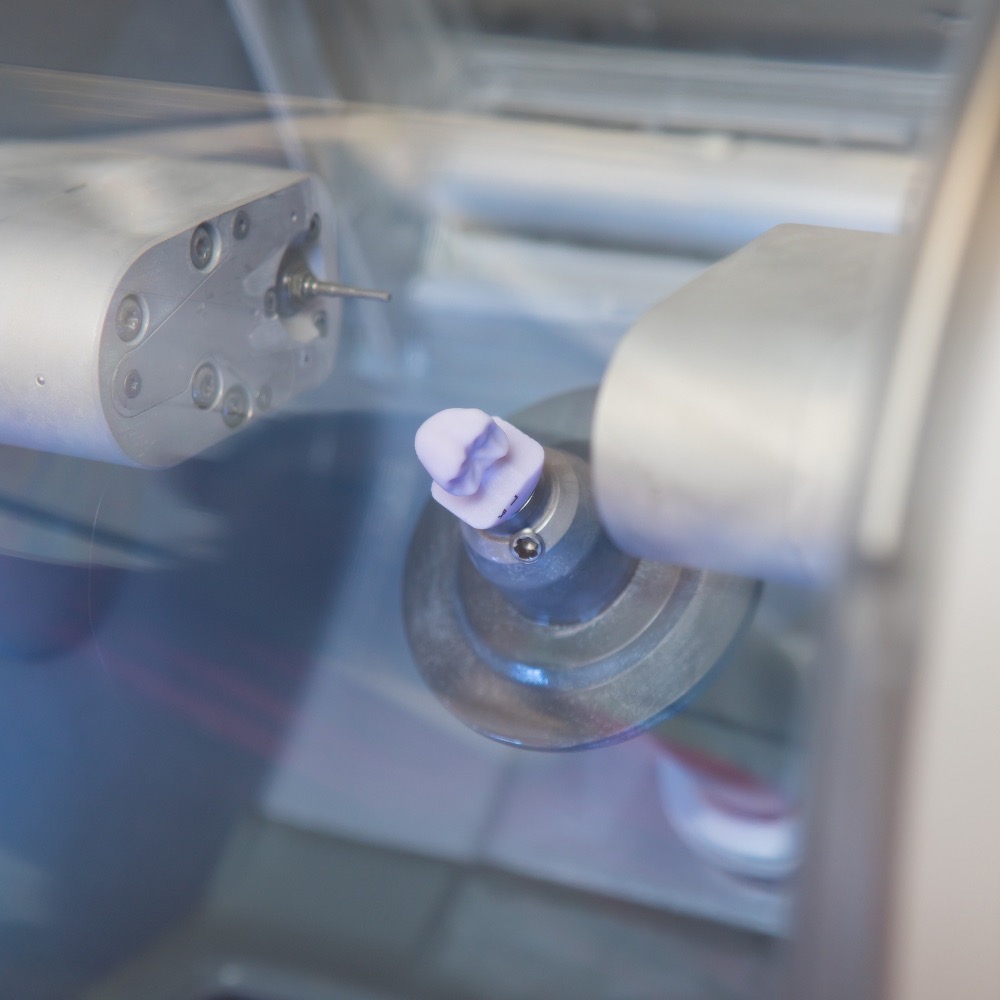
Who Is a Good Candidate for Dental Implants?
Almost any adult can get dental implants. However, our dental implant dentist in Frisco will check that you have these three things to be considered for this treatment:
Even if it sounds like you’re not a good candidate initially, we may still be able to help you! Many of our patients require preliminary treatments like gum disease therapy, bone grafting, or tooth extractions before they can get dental implants in Frisco. We’ll help you schedule these preparatory procedures and get your smile back on track. Once your candidacy for implants has improved, we’ll develop a plan based on the number of teeth you’re missing.
Missing One Tooth
If you have just one missing tooth, you’ll receive a single dental implant to replace its roots. Our team will provide you with a custom crown to replace the visible portion of the lost tooth. This is mounted with the help of an abutment, which is a small connector. Unlike a traditional bridge, this option doesn’t require the removal of healthy enamel surrounding the gap. Plus, a single dental implant lasts longer than other options.
Missing Multiple Teeth
An implant-supported bridge is often perfect for individuals who have a few missing teeth in a row. This type of restoration is similar to a traditional bridge, but it gains all of its support from dental implants rather than from natural teeth. Thus, it is stronger and better for your remaining healthy teeth than a traditional bridge.
Missing All Teeth
A denture, supported by a few strategically placed dental implants, can replace an entire arch of missing teeth. An implant denture may be either permanently fixed in place or removable like a traditional denture. This allows you to restore your smile with a minimum number of implants while enjoying maximum functionality and stability.
Alternatively, you may be a good candidate for All-On-4 dental implants. This treatment is best for patients who have inadequate jawbone density, usually due to missing teeth for a long period of time. Using four dental implants that are strategically placed in the jaw, this solution anchors a denture in place efficiently.
What advanced dental implant technology is available?
Cutting-Edge Dental Implant Technology
Modern dental implant technology has made significant strides, providing patients with more efficient and less invasive options. Here’s a breakdown of the advanced technologies presently available:
Single-stage implants eliminate the need for a secondary procedure to uncover them. After implantation, a healing period of around six weeks is necessary before placing artificial teeth. This innovation streamlines the process, reducing the number of visits to the dental office.
In certain cases, dental professionals can place implants immediately following a tooth extraction. This approach reduces the number of surgical procedures and can accelerate the overall treatment timeline.
Immediate loading is a technique where an implant and crown are placed in a single appointment. This method, known as immediate loading, allows patients to leave with a functional tooth on the same day, enhancing both convenience and aesthetics.
State-of-the-art 3D imaging and computer-aided design (CAD) technologies are utilized to plan implant placements with precision. This ensures optimal placement, enhancing the longevity and success rate of the implants.
Guided implant surgery uses advanced software to map out the exact placement of implants before the procedure. This technology reduces surgical time and increases accuracy, leading to better outcomes for patients.
.
For those seeking a metal-free solution, zirconia implants offer a strong, biocompatible alternative to traditional titanium implants. They are highly durable and provide excellent aesthetic results, blending seamlessly with natural teeth.
These advancements in dental implant technology collectively contribute to faster recovery times, fewer surgical interventions, and improved patient satisfaction.
How Do Removable and Fixed Prostheses Differ in Dental Implants?
When considering dental implants, it’s essential to understand the differences between removable and fixed prostheses.

Removable Prostheses
A removable prosthesis, often referred to as an overdenture, attaches to dental implants through bars or ball-in-socket mechanisms. These attachments allow the prosthesis to be easily removed by the patient for cleaning and maintenance. This type of prosthesis provides convenience and flexibility but may require more maintenance compared to its fixed counterpart.
Fixed Prostheses
On the other hand, fixed prostheses are designed to remain in place permanently and can only be removed by a dentist. These prostheses sometimes referred to as fixed bridges, are secured to the implants and provide a stable and robust solution for missing teeth. They offer a more natural feel and appearance but necessitate a more thorough initial surgical procedure and higher cost.
Key Differences at a Glance
Choosing between the two options often depends on individual preferences, lifestyle, and dental health requirements. Consulting with a dental professional can help determine the best solution tailored to your needs.
Understanding the Cost of Dental Implants
The cost of dental implants in Frisco varies from patient to patient. Your total cost will depend on the number of teeth you’re replacing, the material used for your restoration, and other factors. Since the entire procedure occurs across multiple phases, you’ll only have to pay for one portion of the treatment at a time.
Your dentist will provide you with an estimate of the cost of your procedure and help you look into financing options. Although implants cost more than traditional tooth replacement methods, they are a worthwhile investment providing you with decades of strong, confident, and healthy smiles.

By discussing these aspects with your dentist, you can get a clearer picture of what your final cost will be and explore various financing preferences to make the procedure more affordable.
Preliminary Treatments & Dental Implant Surgery
It may be necessary to undergo preliminary treatments before receiving your dental implants in Frisco. Bone grafting, periodontal therapy, or tooth extraction are most commonly recommended to help create a stronger, more structurally sound environment for your new teeth. If you must undergo one or more of these procedures, you can expect them to be added to the overall cost of your treatment. Not to mention, they may be covered by your dental insurance, which can certainly help lower your expenses.
Also, your dental implant surgery will incur its own fee. Fortunately, because our implant dentist in Frisco places and restores dental implants in-house, you get to stay in one convenient location for the entire process. This will make it much less confusing when it comes to paying the bill, as you won’t need to worry about an outside specialist.
The Parts of Your Dental Implant
The overall price can be influenced by several factors:
How Dental Implants Can Save You Money
Yes, it is tempting to go the cheaper route and save money by choosing a denture or dental bridge; however, you will find that you will actually save money by opting for dental implants. Because traditional prosthetics require special cleaning supplies, dental adhesives, and frequent adjustments and replacements every 5-7 years, the cost can add up quickly. Fortunately, dental implants are designed to remain in place for a lifetime with proper care and do not require any additional products or equipment to keep them clean and in place. Their ease of maintenance makes it possible to lower your risk for tooth decay, gum disease, and other systemic issues that could become costly in the future.
Does My Dental Insurance Cover Dental Implants?
Unfortunately, dental insurance typically doesn’t cover dental implants. However, our experienced team can work with your plan to maximize your benefits while minimizing your out-of-pocket costs. Sometimes, your insurance may cover certain aspects of the procedure, like the consultation or your periodontal therapy, but this will all depend on your plan. Call our dental office to learn more!
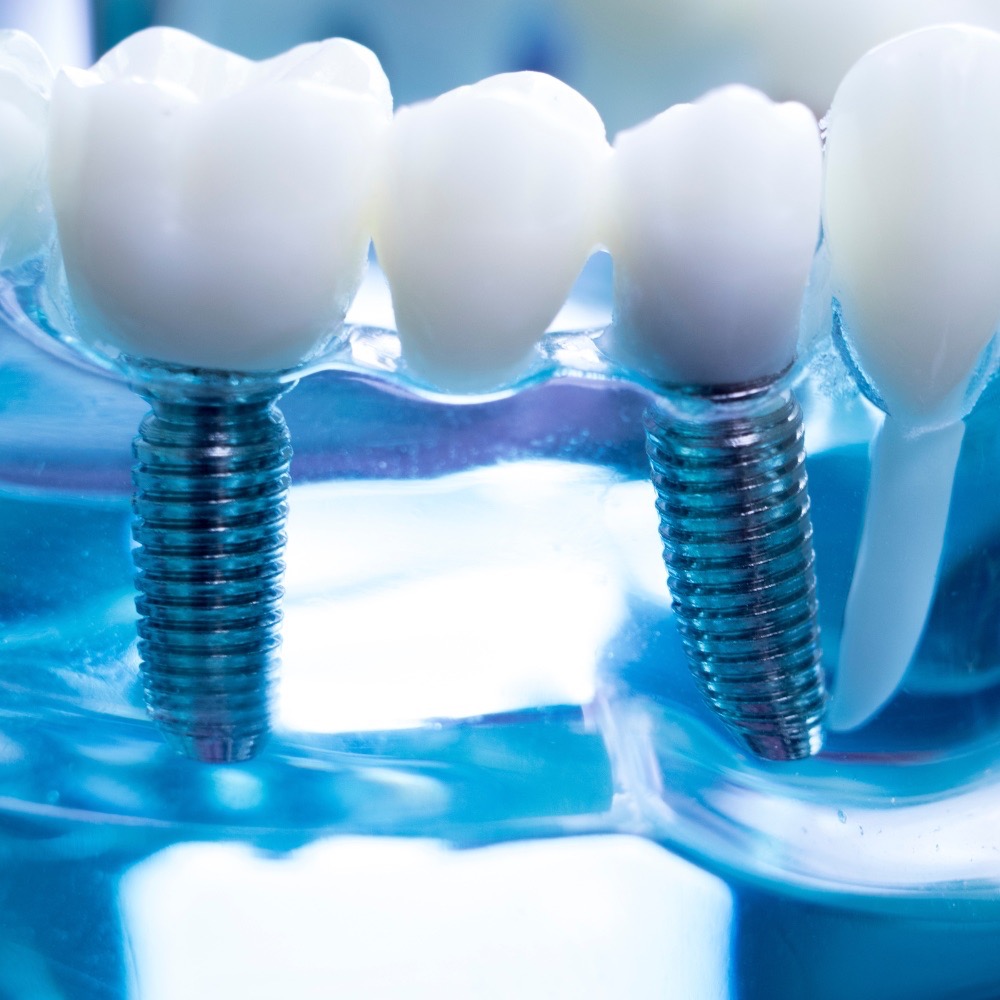
Making Dental Implants Affordable
To make sure your dental implants remain affordable, we are also pleased to work closely with CareCredit. This third-party financier offers low and no-interest financing to eligible individuals who qualify. Having the ability to break up the cost of your treatment into manageable monthly installments will not only ease the stress placed on your wallet but also make it possible to achieve the complete and beautiful smile you deserve.
At Stonebriar Smile Design, we are here to ensure your smile goals are met each time you visit. If you need help to better understand the cost of your dental implants or how to best maximize your insurance benefits, do not be afraid to ask. Simply call our office today to schedule a consultation!
Advanced Dental Implant Procedures
It can be disheartening to learn that your jawbone is too weak for dental implants, but it doesn’t have to remain that way. With advanced dental implant procedures in Frisco, the team at Stonebriar Smile Design can perform a bone graft or sinus lift depending on your individual needs. As the jawbone is the most vital part of successful implant placement, it is necessary that it have enough density to hold up the implants as well as the customized restoration. With state-of-the-art tools and techniques, you can have a stronger bone that allows for implant surgery after you’ve fully healed. To find out if you are a candidate for these types of advanced dental implant procedures in Frisco, TX, contact us today.
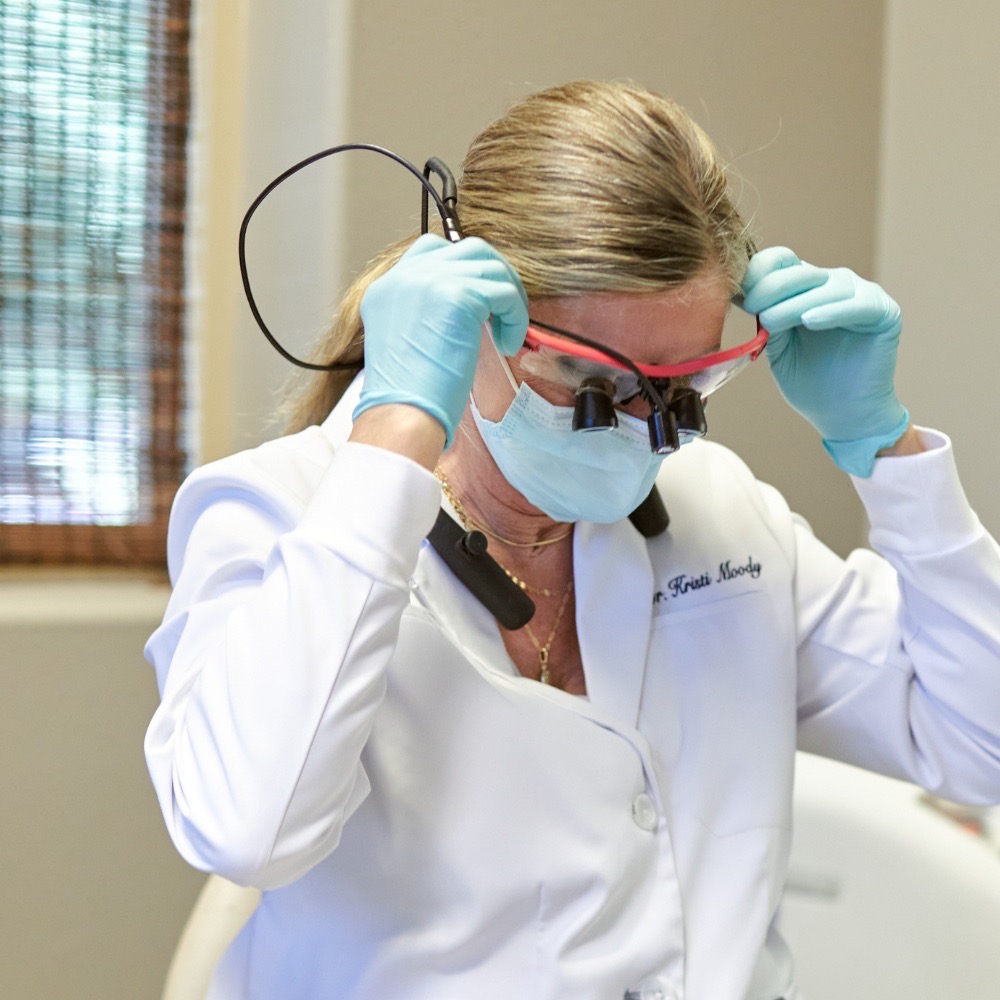
Bone Grafting
When missing teeth in Frisco are left untreated, the result can be a weakened jawbone. Fortunately, a bone graft addresses this particular issue if the bone exists on the bottom part of the mouth. During this type of procedure, our dentists will make a small incision in your gums and place bone minerals in the specific area that is deteriorating. Whether pulled from another part of your body, a bone bank, or animal bone, these materials will work to encourage your body to rebuild and strengthen what will be the foundation for your dental implants.
Once the procedure is finished, which can take anywhere from 45 to 90 minutes, it will be necessary for you to spend the next several months at home recovering. This will allow the minerals to effectively rebuild the bone before you move forward with your dental implant placement surgery.
Sinus Lifts
Unlike a bone graft that occurs on the lower jaw, a sinus lift is performed when the upper jaw is weakened. If a tooth is extracted from the upper row of teeth, you will find that a gaping hole is left behind, allowing the bone to deteriorate. Because this is a difficult area to place dental implants even when the bone is strong enough, our dentists will use the same method of placing bone minerals in the pocket to fill the area and encourage rebuilding. Over time, the bone will grow up into the floor of your maxillary sinuses, which live behind your cheeks and above your upper teeth.
After ample recovery time, our team will work with you to schedule your dental implant placement, putting you one step closer to a fully restored smile.
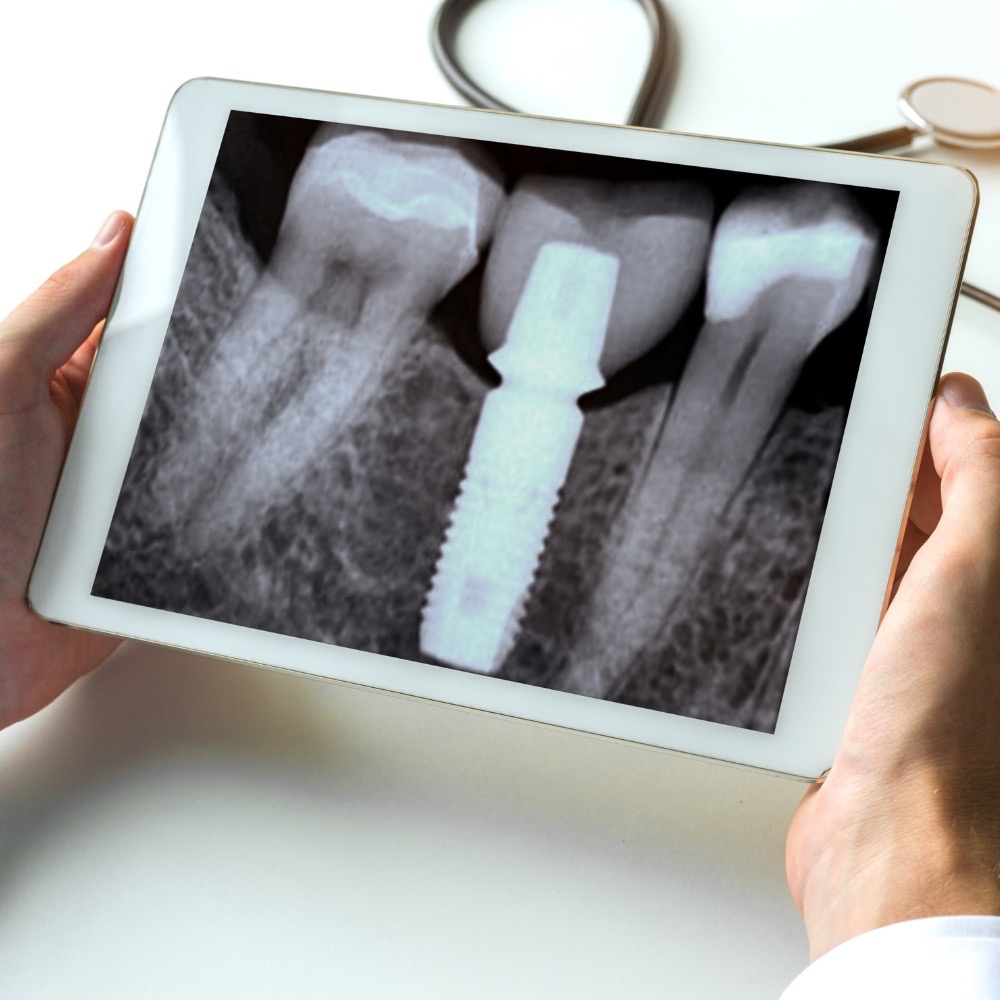
Dental Implant Aftercare
Dental implants have an incredibly high success rate, but part of the responsibility for the health of your smile falls on you! However, there’s no need to worry. We have provided you with some easy yet helpful tips for maintaining your dental implants. Read on to learn more.
Make Oral Hygiene a Priority
When you have dental implants, brushing and flossing are more important than ever. Be sure to brush your teeth twice a day for two minutes each session to remove plaque and food debris. However, don’t brush the implant site for a few days after your surgery to avoid damaging the area. You should also floss in between your teeth and your implants to remove lingering bacteria. Additionally, it’s a good idea to add a nonalcoholic mouthwash to your routine for an extra layer of cleaning. It’s also in your best interest to quit smoking or using tobacco products if you do because these promote dry mouth and make it harder for oral tissue to heal.
Protect Your Dental Implants
Once your restoration is in place, it’s vital that you protect your newly restored smile. This means wearing a mouthguard if you play sports or during any physical activity. Additionally, if you’re prone to teeth grinding, also known as bruxism, you should wear a nightguard to prevent your restoration from getting damaged while you sleep. It’s also important to avoid using your teeth for anything other than eating and speaking. Chewing on nonfood items, opening packages, or using your teeth as tools can lead to dental injury.
Schedule Regular Dental Checkups
Visiting our dental office for regular checkups is a great way to ensure that your dental implants are still healthy, strong, and functional. While you should still schedule your routine dental exams and cleanings, it’s best to make additional visits to check specifically on the health of your implants. One of our expert dentists will carefully examine your smile, your dental implants, the health of your jaw, and the overall condition of your smile. These regular appointments, combined with a stellar at-home routine, will help you enjoy the benefits of dental implants for the rest of your life!
How is the Dental Implant Process a Team Effort?
The dental implant process is a collaborative endeavor that involves both an oral and maxillofacial surgeon and a general dentist. Here’s how these professionals work together to ensure successful outcomes:
- Surgical Phase:
- Implant Placement: The oral surgeon handles the actual placement of the implant into the jawbone. This step requires precision and expertise in oral surgery.
- Preparatory Work: If necessary, the surgeon may also perform initial tooth extractions and bone grafting to prepare the site for the implant. Bone grafting can involve material from the patient’s own body, such as the jaw, hip, or tibia, or synthetic options.
- Restorative Phase:
- Temporary and Permanent Teeth: The general dentist takes over for the restorative phase. They are responsible for fitting and making both the temporary teeth used during the healing period and the permanent crowns that will eventually be attached to the implants.
- Adjustments and Fittings: Any necessary adjustments to ensure a perfect fit and functionality of the teeth are also done by the general dentist.
- Ongoing Care:
- Follow-up Appointments: Regular check-ups with both the oral surgeon and the general dentist are essential for monitoring the healing process and the integration of the implant with the jawbone.
- Maintenance: The general dentist provides ongoing care and maintenance advice to ensure the longevity of the implants.
Specialized Environments and Safety
For optimal sterility and patient safety, the implant surgery is often performed in a hospital-style operating suite. This meticulously controlled environment minimizes the risk of infection and complications.
In complex cases or for patients with special medical or anesthetic needs, inpatient hospital settings might be necessary. This approach ensures all aspects of the patient’s health are considered, especially when extensive procedures like bone grafting from various parts of the body are involved.
Summary
Dental implants require a high level of coordination between the surgical and restorative phases. The oral surgeon and general dentist each bring their specialized skills to the table, ensuring the process is smooth, safe, and results in a successful, long-lasting dental solution.
Dental Implants
Frequently Asked Questions
Dental implants have exponentially become more popular. That’s because more and more people are discovering how effective they are for replacing any number of missing teeth in Frisco. Still, at Stonebriar Smile Design, we understand that many people have questions that need to be answered. Because we believe that education should be a part of any dental procedure, we’ve answered five of the most commonly asked questions about the dental implant process. Ultimately, our dentists are happy to meet with you in person to explain the procedure more in-depth and to answer any other questions you may have. To request an initial visit, feel free to contact us today!
